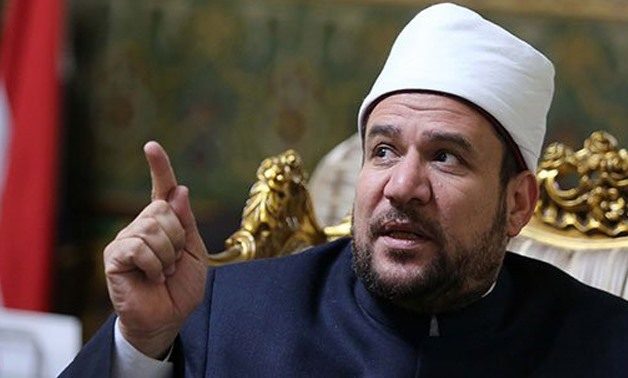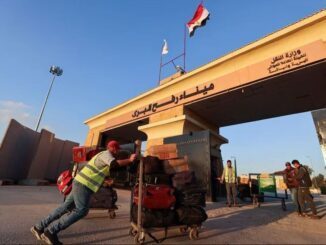
Egypt will ban any public religious gatherings during the holy Muslim fasting month of Ramadan starting in around two weeks “to counter the spread of the new coronavirus”, a government statement said on Tuesday.
Muslims usually break the fast at sunset together with their families, go to the mosque to pray and spend maximum time with relatives.
People will still fast in Ramadan as this ritual that had no link to the coronavirus, said a committee of scholars at Cairo’s al-Azhar university, Egypt’s highest religious authority and one of the world’s most eminent seats of Sunni Muslim learning.
Only the usual exemptions apply, it said in a statement. Travel or sickness are reasons not to fast.
But with health experts recommending social-distancing measures during the global coronavirus crisis, Egypt will ban any gatherings and public iftars – fast-breaking meals – as well as collective social activities, the ministry of Islamic endowments said in a separate statement.
Typically, mass iftars are held for poor people. The ban will also apply to the seclusion of Itikaf when Muslims spend the last 10 days of the month in mosques to pray and meditate, the ministry said.
Awqaf Ministry announces halting Ramadan activities
The Egyptian Awqaf Ministry on Tuesday announced that it decided halting all congregational activities during the fasting month of Ramadan.
Among the activities banned in Ramadan are the Tarawih prayers, performed after Isha prayers during the holy month; for-free mass iftar meals, a tradition Muslims take part in to provide food for the poor during the holy month in the vicinity of mosques or their surrounding space; and I’tikaf, seclusion for worship during the last ten days of Ramadan.
In a statement, the ministry said that the decision is “part of efforts for fighting coronavirus”, adding that the for-free Iftar meals in mosques will also be banned.
The ministry added that mosques will remain closed during the fasting month of Ramadan as long as coronavirus cases are detected in the country.
Mosques will be opened when the Health Ministry announces that there is no a coronavirus case in Egypt, according to the statement, adding that any violator of the decision of closing mosques will be punished.
Egypt, a country of around 100 million people, has reported more than 1,300 confirmed cases of the coronavirus with more than 250 deaths, according to a Reuters tally.
Ramadan will start around April 23, depending on the sighting of the moon marking the start of the month.
Egypt last month ordered mosques and churches to shut their doors to worshippers to help prevent transmission of the coronavirus. Prayer calls are broadcast via loudspeakers.



